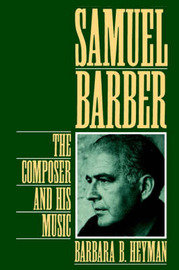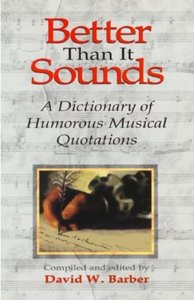Teaching Piano in Groups provides a
one-stop compendium of information related to all aspects of group
piano teaching. Motivated by an ever-growing interest in this
instructional method and its widespread mandatory inclusion in piano
pedagogy curricula, Christopher Fisher highlights the proven viability
and success of group piano teaching, and arms front-line group piano
instructors with the necessary tools for practical implementation of a
system of instruction in their own teaching.
12/27/2012
12/26/2012
Robert Schumann: Herald of a "New Poetic Age" - John Daverio - 1997
In Robert Schumann: Herald of a "New Poetic Age," John
Daverio presents the first comprehensive study of the composer's life
and works to appear in nearly a century. Long regarded as a
quintessentially romantic figure, Schumann also has been portrayed as a
profoundly tragic one: a composer who began his career as a genius and
ended it as a mere talent. Daverio takes issue with this Schumann myth,
arguing instead that the composer's entire creative life was guided by
the desire to imbue music with the intellectual substance of literature.
A close analysis of the interdependence among Schumann's activities as
reader, diarist, critic, and musician reveals the depth of his literary
sensibility. Drawing on documents only recently brought to light, the
author also provides a fresh outlook on the relationship between
Schumann's mental illness--which brought on an extended sanitarium stay
and eventual death in 1856--and his musical creativity. Schumann's
character as man and artist thus emerges in all its complexity. The book
concludes with an analysis of the late works and a postlude on
Schumann's influence on successors from Brahms to Berg.
Mozart: A Life - Maynard Solomon - 1996
Holst: The Planets (Cambridge Music Handbooks) - Richard Greene - 1995
This book is the first comprehensive guide to Holst's orchestral suite
The Planets. It considers the music in detail and places the work in its
historical context, describing the circumstances of its composition and
its meteoric rise to popular acclaim. Starting with Holst's particular
interest in astrology, Greene reveals a profound statement of human
character and Holst's own psychological journey toward the mystical
state. Using parallels in the verbal and visual arts, Greene weaves here
a fascinating tale of musical communication.
Gershwin: Rhapsody in Blue (Cambridge Music Handbooks) - David Schiff - 1997
The Rhapsody in Blue (1924) established Gershwin's reputation as a
serious composer and has since become one of the most popular of all
American concert works. In this richly informative guide David Schiff
considers the piece as musical work, historical event and cultural
document. He traces the history of the Rhapsody's composition,
performance and reception, placing it within the context of American
popular song and jazz and the development of modernism. He also provides
a full account of the different published and recorded versions of the
work and explores the many stylistic sources of Gershwin's music.
A Dictionary of Musical Terms - John Stainer, William Barrett - 2009
This illustrated dictionary, written by the prolific Victorian composer Sir John Stainer (1840-1901) - best remembered today for his oratorio The Crucifixion - and W. A. Barrett, was first published by Novello in 1876. It provides definitions for 'the chief musical terms met with in scientific, theoretical, and practical treatises, and in the more common annotated programmes and newspaper criticisms', ranging from short explanations of the Italian words for tempi, through descriptions of ancient instruments to expansive articles on such topics as acoustics, copyright, hymn tunes, the larynx and temperament.
Ives: Concord Sonata: Piano Sonata No. 2 (Cambridge Music Handbooks) - Geoffrey Block - 1996
Charles Ives's massive Concord Sonata, his second sonata for piano,
named after the town of Concord in Massachusetts, is central to his
output and clearly reflects his aesthetic perspective. Geoffrey Block's
wide-ranging 1996 account of the work thus provides an ideal
introduction to this fascinating composer. As well as a discussion of
the Sonata's reception history from 1920 to the time of publication, and
a chapter on its compositional genesis, this handbook includes a
detailed narrative of the motivic content as well as a historical and
analytical survey of the work's borrowings, both certifiable and newly
proposed. The programmatic element of the Sonata is explored in the
context of Ives's personal vision of four literary subjects associated
with the town of Concord between 1840 and 1860: Emerson, Thoreau,
Hawthorne, and the Alcotts.
Beethoven: The 'Moonlight' and other Sonatas, Op. 27 and Op. 31 (Cambridge Music Handbooks) - T.Jones - 1995
12/24/2012
Music in the Galant Style - Robert Gjerdingen - 2007
Fantasy Pieces: Metrical Dissonance in the Music of Robert Schumann - Harald Krebs - 1999
This book presents a theory of metrical conflict and applies it to the
music of Schumann, thereby placing the composer's distinctive metrical
style in full focus. It describes the various categories of metrical
conflict that characterize Schumann's work, investigates how states of
conflict are introduced and then manipulated and resolved in his
compositions, and studies the interaction of such metrical conflict with
form, pitch structure, and text. Throughout the text, Krebs
intersperses his own theoretical assertions with Schumannesque dialogues
between Florestan and Eusebius, who comment on the theory at hand while
also discussing and illustrating relevant aspects of "their" metrical
practices.
Sourcebook for Research in Music - P.D.Crabtree, D.H.Foster, A.Scott - 2005
The Life of Mozart: Including his Correspondence - E.Holmes - 2009
Samuel Barber: The Composer and His Music - B.Heyman - 1994
Franz Liszt and His World - C.H.Gibbs, D.Gooley - 2006
The essays brought together in Franz Liszt and His World advance our
understanding of the composer with fresh perspectives and an emphasis on
historical contexts. Rainer Kleinertz examines Wagner's enthusiasm for
Liszt's symphonic poem Orpheus; Christopher Gibbs discusses Liszt's
pathbreaking Viennese concerts of 1838; Dana Gooley assesses Liszt
against the backdrop of antivirtuosity polemics; Ryan Minor investigates
two cantatas written in honor of Beethoven; Anna Celenza offers new
insights about Liszt's experience of Italy; Susan Youens shows how
Liszt's songs engage with the modernity of Heinrich Heine's poems; James
Deaville looks at how publishers sustained Liszt's popularity; and Leon
Botstein explores Liszt's role in the transformation of
nineteenth-century preoccupations regarding religion, the nation, and
art.
Benjamin Britten: A Bio-Bibliography - S.R.Craggs - 2001
Benjamin Britten was arguably the greatest English composer of his time.
His music crossed boundaries of genre and form to include opera,
ballet, orchestral and chamber music, and film and incidental music. The
result of twenty years of research, ^IBenjamin Britten^R provides
up-to-date and comprehensive details about Britten's life and music,
including works, performances, and recordings--an effort never before
undertaken. Certain to be of use to any scholar of British music or 20th
century composition, this reference work is an invaluable addition to
the literature on this important artist.
12/23/2012
Gavotte in B minor - Eleven Etudes in the Form of Old Dances, Op.19 - Viktor Kosenko
Viktor Stepanovych Kosenko (1896--1938) was one of the most
important Ukrainian composers and pianists of the first half of the
twentieth century. His Eleven Etudes in the Form of Old Dances, Op. 19,
of 1927--29 offer an organic synthesis of the late-Romantic piano
tradition, neo-Classical impulses in their use of Baroque dance-forms,
and elements of Ukrainian folk-music. This recording of a neglected
monument in the piano literature is the first step in the discovery of a
composer who was once a cultural icon in his native Ukraine but is now
as good as unknown outside its borders.
Better Than It Sounds: A Dictionary of Humourous Musical Quotations - David W. Barber - 1998
This volume features hundreds of
the most humorous, outrageous, enlightening and insightful quotes. This
volume brings together hundreds of the wittiest, cleverest, and
sometimes most horrid remarks ever made about music. Sometimes pithy,
sometimes provocative, sometimes profound - but always amusing, these
quotes by, for and about famous (and not-so-famous) musicians are sure
to brighten anyone's day.
Subscribe to:
Comments (Atom)



















